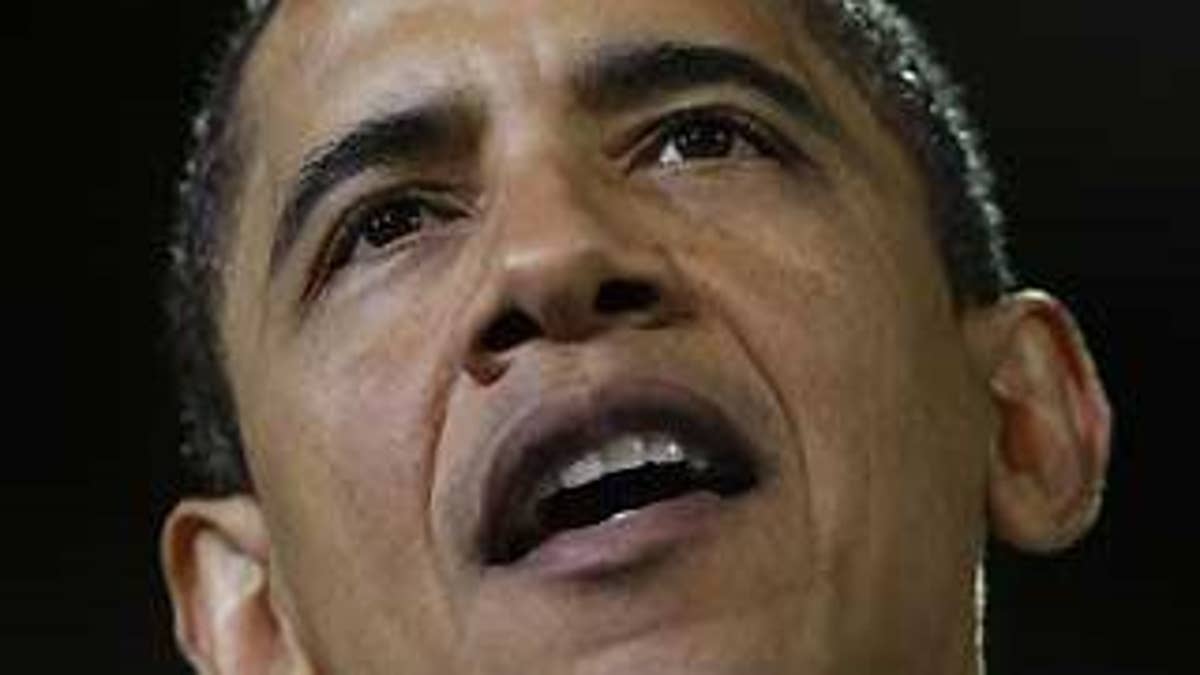
President Obama says he wants to give America's image abroad a facelift, but Republicans on Capitol Hill say they are worried it will come at the expense of national security.
The president over the past few days has warned that his country is losing its "moral bearings" and must deploy the "power of our values" to stay on the "better side of history."
He cited these reasons in abolishing the interrogation tactics outlined in Bush-era memos declassified last week and opening the door for prosecutions against the lawyers who wrote those memos.
But top Republicans warn that Obama is placing America's image abroad over its safety at home.
Michigan Rep. Pete Hoekstra, ranking Republican on the House Intelligence Committee, said former CIA chief Michael Hayden is right in saying that Obama's treatment of the interrogation programs could have a chilling effect on agents' ability to operate in the field.
"It lessens security," Hoekstra told FOXNews.com. "If you've got an intelligence community that's unwilling to take a risk and being very timid ... guess what? You don't have an intelligence community. You've got a bureaucracy."
"Investigating lawyers who did their best to give advice on how the executive branch could protect innocent Americans in the wake of 9/11 will significantly undermine our ability to prevent future terrorist attacks," said Rep. Lamar Smith, R-Texas, ranking member of the House Judiciary Committee.
Obama often talked during the campaign about how he wanted to restore America's world standing, which had suffered under the Bush administration and as a result of the Iraq war.
Indeed, Obama is far more popular overseas than was Bush -- and the new president has strived to rebuild relations with Europe and reach out his hand to Muslim nations, including those whose leaders are considered hostile to the United States.
Obama also cited a need to reclaim the "moral high ground" as he moved in January to close the controversial detention camp at Guantanamo Bay, Cuba.
Hoekstra called the image campaign "shallow." Regarding the interrogation program, he said Obama was on one hand claiming he wanted to put that chapter behind him while on the other hand opening the door for a months-long firestorm on Capitol Hill over the issue.
The value of the harsh interrogation programs, which some lawmakers say amounted to torture, is being debated anew following the release of four memos last week.
Former Vice President Dick Cheney told FOX News earlier this week that he's asked for additional documents to be released to show the valuable information that was obtained through the interrogations.
Director of National Intelligence Dennis Blair wrote a memo to employees in the wake of critical press reports saying "high value information" came from the interrogations. He urged Americans to place the CIA operations in perspective.
"Those methods, read on a bright, sunny, safe day in April 2009, appear graphic and disturbing," he wrote. "I like to think I would not have approved those methods in the past, but I do not fault those who made the decisions at that time, and I will absolutely defend those who carried out the interrogations within the orders they were given."
(He later issued a statement saying the techniques are not needed to keep Americans safe and that the information gleaned using them "was valuable in some instances, but there is no way of knowing whether the same information could have been obtained through other means.")
But other lawmakers have long argued that such interrogation techniques hurt not only America's image but America's security.
Rep. John Conyers, D-Mich., released a written statement Tuesday announcing that his Judiciary Committee would hold hearings on the interrogations, even before an internal Justice Department report is finished if necessary.
"The use of tactics described in these memos runs counter not only to basic notions of decency, but places our own prisoners of war at risk and weakens our national security," he said.
Arizona Sen. John McCain, the 2008 GOP presidential nominee who spent five years as a POW during the Vietnam War, said methods like waterboarding are torture and provide dubious results when employed.
"Most importantly, it serves as a great propaganda tool for those who recruit people to fight against us," he told FOX News Monday.
But he and other senators wrote to Obama Wednesday urging him not to back prosecutions of Bush lawyers.
Smith argued that the image campaign is counterproductive on both fronts.
"The reality is, as President Obama has learned over the past few weeks, blaming Americans isn't the way to repair our international image," he wrote in an e-mail to FOXNews.com. "Instead it only alienates the very people you are supposed to represent."
He cited CIA claims that waterboarding Al Qaeda's Khalid Sheik Mohammed yielded information about a planned attack on Los Angeles and said the administration should be thanking the lawyers who drafted the interrogation memos.
"We have to push the envelope when interrogating terrorists," Smith wrote. "We can't just expect them to give up critical information by baking them cookies."
Obama, though, insists national security never plays second fiddle on his agenda. And he has called the apparent tug-of-war between safety and ideals a "false choice."
"I wake up every day thinking about how to keep the American people safe, and I go to bed every night worrying about keeping the American people safe," Obama said Tuesday. "I've got a lot of other things on my plate ... but the thing that I consider my most profound obligation is keeping the American people safe."
FOXNews.com's Judson Berger contributed to this report.




